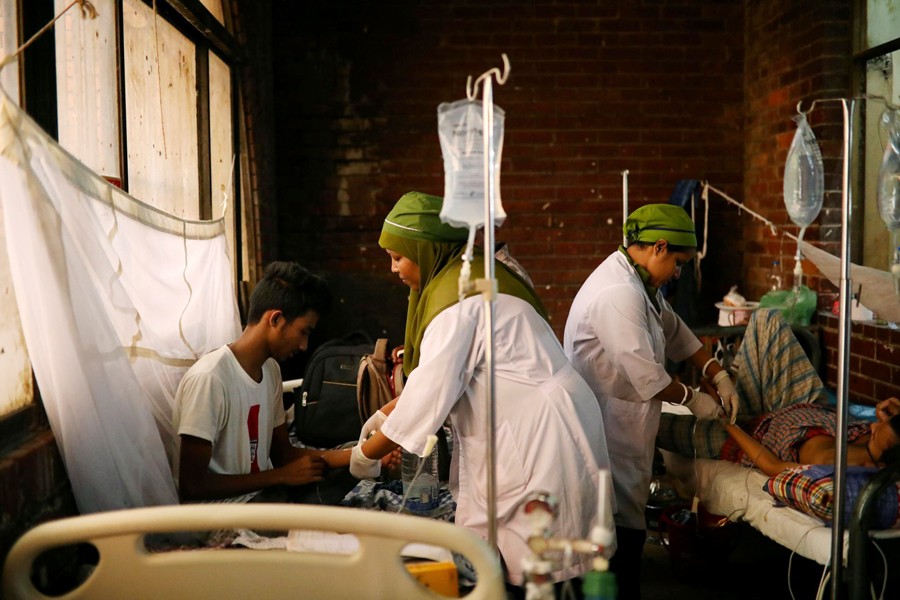
Published :
Updated :

Experts at a policy dialogue on Sunday emphasised the urgent need for proper implementation of the health sector reform recommendations to help the sector flourish in line with the country's development goals.
They also said there has been no visible and significant step to implement the recommendations of the Health Sector Reform Commission (HSRC) in the last three months.
They made the observation and suggestion at the dialogue, organised by the Power and Participation Research Centre (PPRC) and the UHC Forum with support from UNICEF Bangladesh in the city's CIRDAP auditorium.
A number of dignitaries including public health experts Professor MA Faiz, Syed Liaquat Ali, health economists Dr. Syed Abdul Hamid, Zakir Hussain, Dr. Sayed Rubayet, former DG of DGHS Dr Abul Kalam Azad, and IEDCR Adviser Mushtaq Husain spoke on the occasion, among others.
PPRC Executive Chairman Hossain Zillur Rahman moderated the discussion. He opined that the HSRC has laid a crucial foundation.
"However, the absence of visible action risks repeating the country's historical tendency to shelve important policy recommendations in the recent times."
Reforms must not remain limited to vision, it must become a reality, he added.
The discussants assessed the current state of health governance, system inefficiencies, and the slow progress in advancing the HSRC's recommendations.
They broadly agreed that while the submission of the HSRC report marked a significant milestone, no meaningful reform initiative has materialised in the three months.
They stressed the urgent need for a clearly-defined transition plan from the current situation, anchored by a time-bound and empowered Health Reform Taskforce, to convert the HSRC's recommendations into actionable legal, financial, and institutional changes.
Such a taskforce would serve as the crucial bridge between vision and implementation.
The discussion also shed light on several systemic challenges impeding progress: overlapping institutional mandates, inadequate emergency care systems, the lack of a national health financing strategy, and persistently low public investment in health.
Syed Abdul Hamid, a professor at the Institute of Health Economics, DU, suggested establishing an agency in Bangladesh that would be similar to the National Pharmaceutical Pricing Authority in India in a bid to proper management of pharmaceutical sector in Bangladesh.
"It would be a win-win situation for the customers and drug makers," he added.
Critical reform priorities identified during the dialogue included equitable service delivery, reproductive health, provider and patient safety, and improved health literacy.
saif.febd@gmail.com


 For all latest news, follow The Financial Express Google News channel.
For all latest news, follow The Financial Express Google News channel.